One of the first things that come to mind when we think of shooting is tweed, waxed coats, wellies and all the other clothes that come with a good day out in the countryside. In the posters they are all gorgeous, pressed outfits but as anyone who actually goes shooting knows they are more likely to be patched up, well-loved and, more often than not, covered in mud.
I grew up around shooting and certainly as a child always wore hand-me-downs to go beating. Even as an adult my shooting attire was normally borrowed from someone else and layered over inappropriate city clothes. It never occurred to me to invest in any of the clothing that would actually keep me warm – or to go shooting myself.
The trouble is I like to eat pheasant. In 2014 I decided that if I was going to eat any meat, I had to kill it myself. I know, it sounds extreme, but it was prompted by serious concerns about climate change. I knew that livestock produce more greenhouse gases than all the world’s planes, trains and automobiles put together. The easiest thing I could do if I wanted to tread more lightly on the planet was to give up meat. But how could I possibly be a vegetarian?
I am a farmer’s daughter and every time I came home to Scotland I was offered venison or free range lamb. I could see these animals were raised well as part of a farming system maintaining the countryside. I decided the only way I could justify eating animals was if I killed them myself.
I started off with rabbit and pigeons and although it was upsetting I began to learn the skills of using a rifle and a shotgun. I admired the country men and women who understood the wildlife around them and certainly enjoyed eating meat I had sourced myself. As I grew in experience, I went stalking and ate venison. I also investigated how farm animals like sheep, pigs, chicken and cattle are raised and slaughtered. Again, it was not pleasant but I was glad to understand fully where my meat was coming from so I could make more informed choices. I realised my journey was relevant to a wider conversation happening in society about the amount of meat we eat and was offered a publishing deal by Bloomsbury. My book, The Ethical Carnivore, was published this September.
Including pheasant shooting in the book was always going to be controversial. Pheasants are put down every spring and driven over the guns. I could hardly describe such an unfair advantage as perfectly ‘ethical’. Yet I wanted to explore the world of shooting because of my background. The people I knew who shot pheasants were not bad people, many knew a lot more about the countryside and environment than I did. The pheasant shoot was an annual meet up, an opportunity to catch up after the harvest. The grain put down for the pheasants and cover crops along field margins also helped wild birds. Most importantly all the pheasants were taken home and eaten. It upset me that shooting was portrayed as ‘toffs’ shooting as many birds as possible. In fact it is a lot more complex. Yes, there are shoots where thousands of pheasants are released in a small area damaging the environment, the reputation of the industry. But there are also small family shoots and responsibly-run corporate shoots providing jobs, maintaining the countryside and supplying a sustainable source of protein. I hope my book has helped develop a more nuanced argument for both sides.
I also hope my book encourages more women to take up shooting. I can’t pretend that I became a great shot over night. But it is no more difficult physically for women than men, as long as you have a well-fitted gun and I think women could bring a lot to the table, so to speak, by insisting on eating the birds afterwards. Often women are bombarded with pretty kit when they are start shooting for the first time. I must admit I did invest in my own jacket (tweed with a pink weave) and wellies for the first time, which improved my experience immeasurably. But shooting is not just about the kit. It is about the time, energy and care you put into it. It is about experiencing the countryside, getting to know the people and appreciating the meat, whatever you wear.
Louise Gray is an Edinburgh-based writer and journalist. Her work has appeared in The Daily Telegraph, Scottish Field, The Guardian and featured on the BBC. You can follow her on Twitter @loubgray or find out more on her website www.louisebgray.com
Her first book, The Ethical Carnivore, is available on Amazon.

